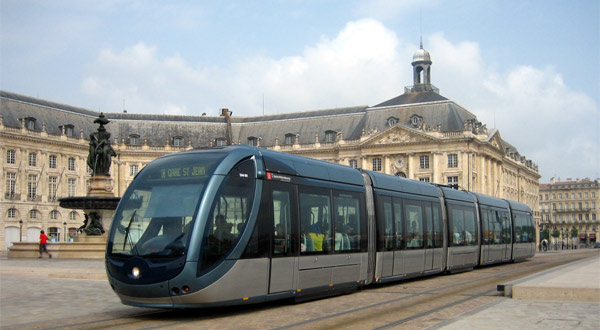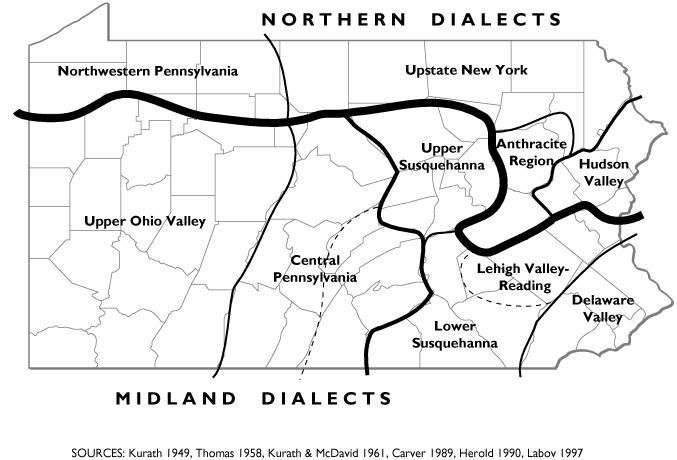Commitment to Tramways Makes France a World Model for New Urban Rail

from the Transport Politic blog:
Commitment to Tramways Makes France a World Model for New Urban Rail
Last weekend, the city of Brest, on the far western coast of France, opened its new tramway, a 14.3-km (8.9-mile) line that connects the center city to the west and northeast. 50,000 daily riders are expected in a city of about 140,000 inhabitants. This Friday, Orléans, an even smaller city in central France, will open its second, 11.3-km tramway line. The first already attracts about 40,000 daily users.
These two cities are far from alone in France. Across the country, cities large and small have adopted the construction of modern tramways* to bring their citizens a modern form of public transportation that has led to improved circulation, more convenient networks, and renovated downtowns. Like American streetcars, these tramways operate at the ground level, usually without grade separation from automobile traffic, making them relatively cheap to build; on the other hand, like American light rail, tramways operate within their own rights-of-way and they feature long trainsets that can carry the equivalent of four busloads or more — in other words, they actually improve transit capacity and performance.

The appeal of tramways is easy to understand. The electric vehicles are silent, modern-looking, and entirely flat-floor. Their tracks can be nestled in a lawn, creating a grass median through which trains run; if done right, they can be used as a tool to restore the beauty of an urban boulevard, rather than deface it, as do some light rail lines traveling on grade-separated track. In some cities, like Nice, Bordeaux, and Orléans, vehicles have been designed with batteries that allow them to travel some distance (such as across a historic square) without the need for overhead catenary wire. In virtually every case, tramways in France have been specifically located on major bus corridors, in order to replace overcrowded routes with higher capacity services.
France is not alone in using trams, of course; Germany, notably, has dozens of such systems across the country, as do Switzerland, the Netherlands, and others. But as of late, France’s cities have made an unparalleled investment in the mode. While France had virtually no historic tramways left by the 1980s outside of short routes in Marseille, Lille, and St. Etienne, by the end of this year, 25 cities will have such networks and 29 will by 2016, as the map above shows. And most of this construction has occurred since 2000, with an increase from 124.7 km nationwide to 624.1 km (388 miles) by the end of this year, a 400% increase. In 2010, 2011, and 2012 alone, 160.2 km will have been built. .......................(more)
The complete piece is at: http://www.thetransportpolitic.com/2012/06/24/commitment-to-tramways-makes-france-a-world-model-for-new-urban-rail/
nxylas
(6,440 posts)Wish my home city (Bristol, England) would take a leaf out of France's book, but they seem hell-bent on ripping up existing rail lines for the sake of a BRT route instead.
happyslug
(14,779 posts)Why? Everyone knows that the American Name for something is better. For example we all know Flashlights are better then Torches, Elevators are better then lifts, Wrenches are much better the Spanners and Trucks are better the Lorries. Using the American name for something always makes something BETTER.
Just a joke on the differences between British and American English.
Other differences between American and British English:
http://en.wikipedia.org/wiki/Comparison_of_American_and_British_English
Map on American Dialects:
http://www.uta.fi/FAST/US1/REF/dial-map.html
More about American Dialects:
http://en.wikipedia.org/wiki/American_English
List of English Dialects:
http://en.wikipedia.org/wiki/List_of_dialects_of_the_English_language
Map of North American Dialects:
http://aschmann.net/AmEng/#LargeMap4Right
The above calls "Pittsburgh" a sub division of the Allegheny Dialect which surrounds the Pittsburgh Dialect. Both are close, with Pittsburgh having a few more sounds from overseas (and that is more an opinion by some writers then others, i.e. others call it both "Western Pennsylvanian" or "Upper Ohio Valley" but its extends the whole length of the Pittsburgh Seam of coal).
Here is a Dialect map of Pennsylvania:

http://www.evolpub.com/Americandialects/PennaDialMap.html
Here is a Pennsylvania Coal Map. The Pittsburgh seam is the bituminous coal field that goes south of Pittsburgh, but the Freeport seam was mined to the north. Thus a lot of workers shifted form one mine to an another, thus making a whole area one of the larger area in the Country with one dialect.
On the Coal map where the letter "F" is in field is about where Pittsburgh is. In the dialect map, Upper is underlined by the Northern border of Allegheny County. The County Seat of Allegheny County is the City of Pittsburgh which is in the center of Allegheny County.
Here is a Pennsylvania Coal map:

http://www.dcnr.state.pa.us/topogeo/econresource/coal/index.htm
I just was carried away by your use of the work "Tram" on DU, it is used a lot of DU and most DUer know it is the English word for the American word "Streetcar", but once I started to look up places to support the difference in wording, I was carried away by the topic.
nxylas
(6,440 posts)I am British. but I normally use American words and spellings on DU, because it is an American site with a mostly American readership.